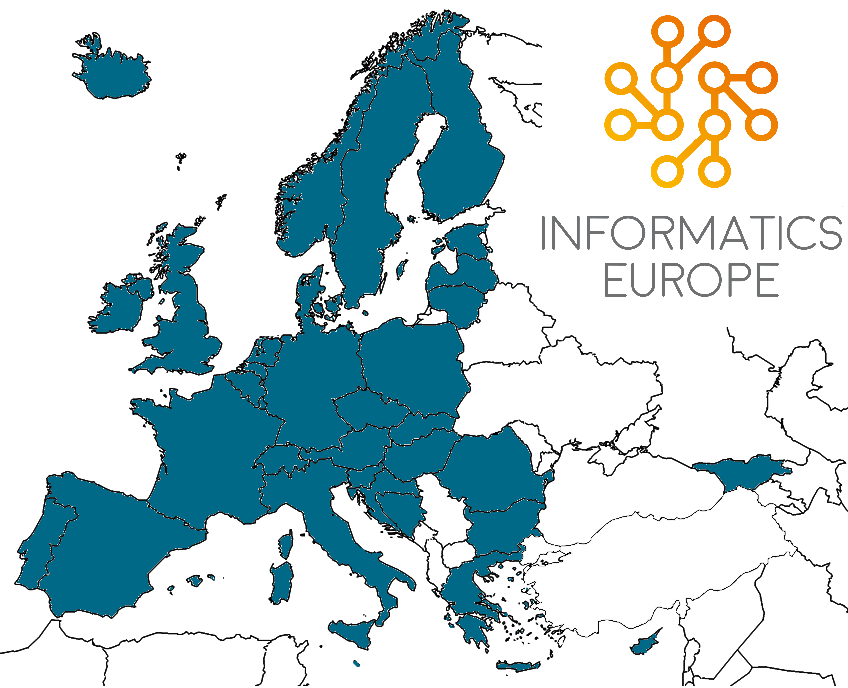Informatics Europe has published a new report, Bachelor-Level Informatics Education in Europe: Key Data & Trends, 2018/19 – 2022/23, providing fresh insights into the state of Informatics education across 24 European countries.

Drawing on official national statistics validated by experts, the report is available through the Informatics Europe Higher Education (IEHE) Data Portal. Here are the key findings:
- Rising Enrolments: Most countries have seen steady growth in enrolments in Bachelor’s Informatics programmes over the past five years, confirming the field’s growing appeal.
- Role of Universities of Applied Sciences (UAS): In countries such as Finland, Germany, Ireland, the Netherlands, and Switzerland, UAS play a central role, often surpassing traditional Research Universities (RUs) in first-year enrolments and significantly contributing to the total number of degrees awarded.
- Persistent Gender Imbalance: Women remain underrepresented in Informatics, rarely exceeding 35% of the student population. Sweden leads with the highest share of female students, while Belgium (RUs) reports the lowest. Encouragingly, many countries show a gradual upward trend in female enrollment.
- Graduation Trends: Most countries report an increase in Bachelor’s degrees overall, but only half record a rising share awarded to women. In the others, the female share has stagnated or declined.
The findings highlight the importance of sustained efforts in gender equity, policy support, and ongoing data collection to strengthen Informatics education across Europe.
Looking ahead, Informatics Europe plans to extend its annual reporting to cover Master’s and PhD trends in the coming year. The work is supported by the IE Data Analysis and Reporting Working Group, which welcomes new members interested in contributing data, refining their country insights, or co-authoring future reports.
Explore the full report here.


 Netlogica
Netlogica